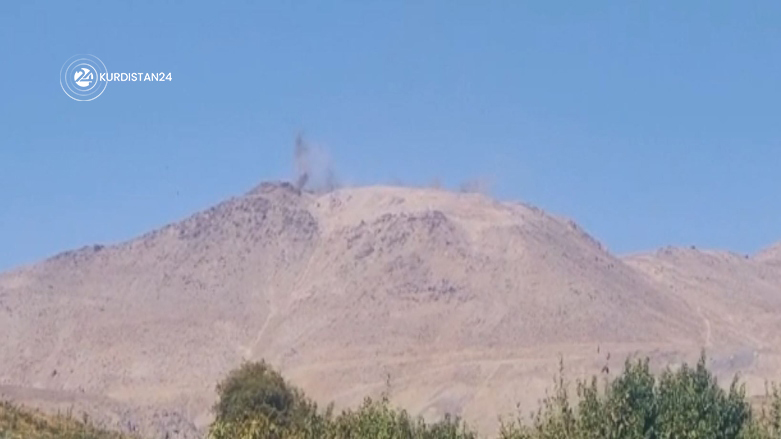US condemns Iranian shelling of border areas of Kurdistan Region
“We condemn violations of Iraqi sovereignty and territorial integrity, including the reported shelling by Iran’s forces in the Iraqi Kurdistan Region."

WASHINGTON DC, United States (Kurdistan 24) – Responding to a question from Kurdistan 24, a State Department spokesperson strongly criticized Iranian shelling of the border areas of the Kurdistan Region.
“We condemn violations of Iraqi sovereignty and territorial integrity, including the reported shelling by Iran’s forces in the Iraqi Kurdistan Region,” the spokesperson said.
For four straight days, since Saturday, Iran has shelled border areas of the Kurdistan Region, as protests have erupted throughout the country in response to the death, in the custody of Tehran’s morality police, of a 22-year old Kurdish woman, Mahsa (Zhina) Amini.
Read More: Iran continues shelling Kurdistan Region border areas
The US was quick to condemn the police brutality that led to Amini’s death. Washington also denounced the regime’s harsh repression of the widespread protests that followed. Indeed, it announced a series of sanctions targeting the Iranian entities involved in that repression, including the Intelligence Ministry, the Army’s Ground Forces, and law enforcement.
Tuesday’s statement, however, marked the first US comment on the Iranian attacks on the northeastern areas of the Kurdistan Region. So far, they have caused no casualties, but they have resulted in significant material damage.
Tehran claims that Iranian Kurdish separatist groups maintain bases in the areas it is attacking. Local officials, however, deny there are any fighters in those places.
The Protests and their Suppression
“At least 76 protesters have been killed by Iranian security forces during 11 days of unrest,” the BBC reported early on Wednesday, while “hundreds” of people have been arrested, including 20 journalists.
The protestors tend to be youthful, while women are playing an unusually prominent role in the dissent.
“Videos posted on social media have shown women defiantly burning their headscarves on bonfires and cutting their hair in public to cheers and chants of ‘Women, life, freedom,’ and ‘Death to the dictator,’” the BBC said.
As Amini was Kurdish, the protests have been particularly vociferous in the Kurdish areas of Iran (Rojhilat.) At least 52 women have been arrested there.
Read More: 52 women arrested during protests in Iranian Kurdistan: Hengaw
The protests have also prompted American commentators to suggest that the US needs a broader approach toward dealing with Iran. Writing in The Washington Post on Saturday, Karim Sadjadpour, a senior fellow at the Carnegie Endowment for International Peace, stated “The unrest triggered by Amini’s death should push the Biden administration to reassess its Iran strategy.”
“Until now, the main focus of US policy toward Iran has been a fruitless attempt to revive the 2015 nuclear agreement,” Sadjadpour continued, describing the effort as “short-sighted.” Instead, he called for a policy that aimed at overthrowing an unpopular regime.
Similarly, the journalist, Eli Lake, in an opinion piece in the New York Sun on Monday, called on the Biden administration to meet with representatives of the Iranian uprising.
Lake cited Salah Bayaziddi, the US representative of Iran’s Kurdish party, Komala, “I think everything has been changed since 10 days ago.”
“While this round of unrest was sparked by the killing of a Kurdish woman in the custody of the morality police, all segments and ethnicities in Iran are participating in the uprising,” Lake stated.
“The wise move now,” he concluded, is for the US “to state publicly that America is in solidarity with the revolution” and send its “diplomats to meet with representatives of the current resistance to seek an equitable nuclear deal once the Islamic Republic falls.”